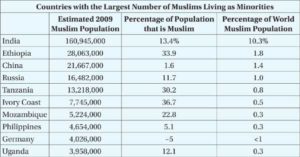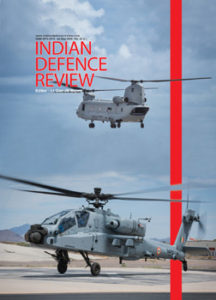The French forces as well as government responded well and ‘Paris’ brings out some important issues as under:
• Need for learning from various encounters: The Western world did well to rehearse the Mumbai-like situation and prepare for such eventualities. Pakistan failed to learn from the Indian experience of the attack at Samba or Belsan School episode.
A policy review is called for and needs to focus on “rewarding states which maintain a healthy security environment” rather than an unstable and risky state of affairs…
• Need to keep past offenders under scrutiny: Had the two brothers been kept under scrutiny, things might have been different. In the 26/11 incident, had the citizens been alert enough to report Headley’s activities, things might have been different too. Such organisations which stick their necks out, need to be provided ‘plains clothes’ surreptitious security cover which would surprise and neutralise any attacker.
• Respect for each other’s sensitivities: Whether religious or otherwise, respect for all is a must and laws required to prevent as well as punish those who speak out against any community, caste or religion. All places of worship, content and leaders need to be regulated under a central law.
• Need to be prepared for multiple attacks: In the Paris incident, the two terrorists were rather weak and had limited weapons as well as objective, yet they held hostage a nation for over 72 hours. The second incident was merely a one-off effort at divergence to seek some relief for the other two terrorists. There were no explosives or other munitions which could have caused much devastation and posed a challenge for the GIGN. Small teams at police station levels are a better response.
• Build up a good tracking system: The reason perhaps that the two brothers decided to become ‘martyrs’ was the fact that France has a good system of tracking individuals and they realised that they could not flee the country, the best option therefore was to escalate, get more media focus and go down! Therefore, the need of a sound and robust tracking system.
Divisive politics which lead to polarisation is a nightmare for CT intelligence and provides easy access to safe heavens as well as targets…
• Observation from the air, ground and through walls as well as radio signals, pays in tracking, locating and neutralising terrorists while at the same time keeping track of hostages if any and their condition, location and safety during operations.
• Isolate areas and exits: Keep the attackers fixed till experts arrive and then do what is best. A system of warning through mass SMS to general public giving them advisories is very useful. This was extremely effective during the metro bombings in London in 2007. Lockdown of all doors and windows in the neighbourhood, with curfew around, is a must for reasons of safety.
• Negotiations buy time for security forces to gain information: There must, therefore, be a well-trained negotiator and a formal well-structured negotiation policy to be followed. No negotiation can be successful without knowing the details of terror groups and persons involved, which in turn highlights the need for profiling and ready data.
• Cut all communications when there is the need to isolate the area: ‘Isolation’ includes cutting off terrorists from all communications, power and water supply. Internet, cell and TV connectivity provides them with knowledge and also allows the controlling agencies to give them directions. This must not be allowed at any cost. Isolation will break down the motivation of terrorists to some extent.
• Minimise media coverage for the same reasons given above. Too much liberty to media leads to irresponsible coverage in the race for TRPs. Being contrary to national and operational requirements as well as safety of hostages, if any, therefore as a policy, media must remain at safe distances and restricted to comments by domain experts as permitted by the government. Lose comments and speculation tend to convey wrong impressions and may also spread fear while giving terrorists more credit than they deserve.
• Governments must convey a strong position: The formal government stand on all such attacks must go beyond announcing monitory relief to NOK. There must be a policy in consonance with national strategy in countering terrorism and this must be aired by all spokespersons.
The pillars of society need to stand together in the efforts to usher sanity back in a world going crazier each day…
Regional Experience and India
Sri Lanka ended the LTTE movement through an almost all-out war. This was possible since the particular community was predominantly living in an area separated from the others. Pakistan is mired in acts of terror and does not seem to be able to contain the menace because of the intermix of communities and weak government policies which vacillate between support to some terror outfits to playing the victim, on the one hand, and terrorism being the main pillar of their Anti-India Strategy for its very existence on the other.
India with its admixture of religion, freedom of all citizens to settle across the country barring some restrictions in the State of J&K, the large population and poverty being exploited to create disillusionment amongst various segments of society. Divisive politics which lead to polarisation is a nightmare for CT intelligence and provides easy access to safe heavens as well as targets. Age old tactic of states to demand ‘additional funds’ for development “because they are disturbed” encourages an “insecure environment” since it benefits many. A policy review is called for and needs to focus on ‘rewarding states which maintain a healthy security environment” rather than an unstable and risky state of affairs.
Security of Service Personnel
Interacting with the British Army officers who were at some point of time been deployed on CT Operations in Ireland was rather revealing. While deployment in small teams was the norm, what stood out glaringly was that no one was addressed by name! Each member was given a number instead. When asked about the reason for this, the reply was quite simple. “The IRA get to know even the surname and they trace us back to our families and homes. When the time comes, they either hit us while on leave or hit our families who are soft targets!”
When the NSG was being raised, high risk insurance was asked for and anonymity as well as security of the men/families especially those deployed for VIP security was felt necessary for the very same reasons. The
Visible support and synergy needs to be displayed by each community as well as the central and state governments…
incidents at Nagrota, Samba and Jammu are indicative of what can happen. In addition, the killing of an officer while he was on leave as well as the recent killing of an RR jawan indicates the need for concealing the identity and securing cantonments across the country. Opening up of cantonment roads as well as the unilateral ceasefire are both fraught with danger and will invariably impact the morale of the forces.
Conclusion
To reinforce my view that communal polarisation will be a challenge, reproduced here is data on Muslim population in different countries. While 80 per cent of the world’s Muslims live in countries where they are in majority, significant numbers, about one-fifth of the world’s Muslim population, live as religious minorities in their home countries. Of the roughly 317 million Muslims living as minorities, about 240 million – about three-quarters – live in five countries – India (161 million), Ethiopia (28 million), China (22 million), Russia (16 million) and Tanzania (13 million). Two of the ten countries with the largest number of Muslims living as minorities are in Europe: Russia (16 million) and Germany (four million).These minority populations are often quite large. For example, India, a Hindu-majority country, has the third-largest population of Muslims worldwide. The Muslim population of Ethiopia is about as large as that of Afghanistan. China has more Muslims than Syria; Russia is home to more Muslims than Jordan and Libya combined and Germany has more Muslims than Lebanon.
 The security and safety of a country and its citizens is no longer the job of the police or counter-terror forces alone. Today, citizens, town planners, policy makers and civil society need to come together to fight the scourge of terrorism and insecurity. Industry too has a stake in this and good CSR projects help maintaining peace and security. The role of families, educational institutes, religious heads, and media cannot be over emphasised. People have become the first responders; security forces the last responders and therefore, need to respond by preparing themselves for such events.
The security and safety of a country and its citizens is no longer the job of the police or counter-terror forces alone. Today, citizens, town planners, policy makers and civil society need to come together to fight the scourge of terrorism and insecurity. Industry too has a stake in this and good CSR projects help maintaining peace and security. The role of families, educational institutes, religious heads, and media cannot be over emphasised. People have become the first responders; security forces the last responders and therefore, need to respond by preparing themselves for such events.
Visible support and synergy needs to be displayed by each community as well as the central and state governments. Paris has shown the way in which countries and people have to stand together across all sections, a first in the history of mankind where 40 nations marched together in a show of solidarity against terrorism. The expression of support by the French parliament on the following day, is worth emulating. India’s central and state governments as do all political parties need to learn from this. Not a single minister has ever stood for solidarity against such acts in India. Instead, each party has been quick to criticise, either the party in power or the security forces concerned and almost every time, one or the other religion. This must stop. The pillars of society need to stand together in the efforts to usher sanity back in a world going crazier each day.





